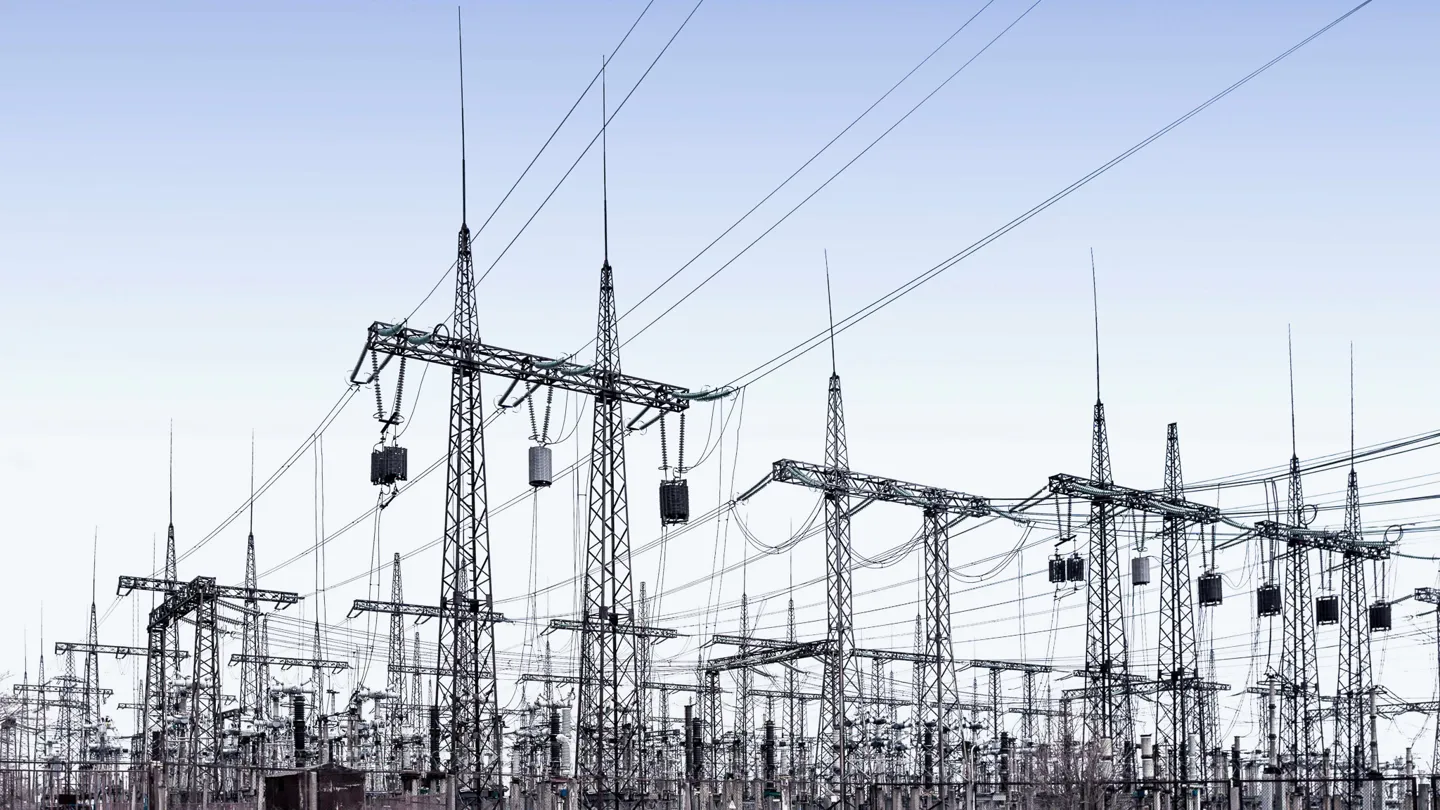Infrastructure
In its broadest definition, infrastructure can include all assets and resources that together create the conditions for a functioning society. The concept is usually divided into economic and social infrastructure, as well as hard and soft infrastructure.

Economic infrastructure includes transportation, energy, water and sewage, and communication.
Social infrastructure encompasses what is sometimes called public properties, including schools, hospitals, sports facilities, and more.
Hard infrastructure refers to physical assets that typically take the form of large networks, such as roads, railways, energy transmission facilities, water and sewage systems, and infrastructure for postal services, TV and radio broadcasting, IT, and telephony.
Soft infrastructure differs from hard infrastructure in that it does not primarily consist of physical assets. Soft infrastructure refers to democratic and law enforcement institutions, the financial system, a country's knowledge base, shared values, and its informal rules and norms. Soft infrastructure can also include physical components like court, prison, and school buildings.
"Our advice covers the entire lifecycle of infrastructure, from financing and construction to procurement, acquisition, restructuring, sale, and potential disputes."
Infrastructure can be both privately and publicly owned. Generally, roads, railways, water and sewage systems, as well as larger ports and airports, are often publicly owned, while infrastructure for telecom and energy transmission generally has a greater degree of private ownership.
The expansion of infrastructure is crucial for people's ability to travel, for business development, for an efficient economy, and for the growth of Sweden as a whole. We create added value for our clients by combining leading industry knowledge with legal expertise to help you as a client stay at the forefront and make the best possible deals during this development.
Lindahl's offering
In all projects, we work with our own experts in each respective industry. We advise clients such as purchasers, executors, consultants, contractors, and financiers from both the public and private sectors. We have also worked with public-private partnership projects and privately financed collaboration projects and have a good understanding of the commercial issues surrounding these agreements and collaborations.
Contract negotiations and drafting, adaptation and negotiation of industry-specific standard contracts, planning and preparation of tender documents and quotations, assistance with procurement, ongoing advice during project implementation and warranty periods, as well as liability investigations, are a natural part of our work.
Our advice covers the entire lifecycle of infrastructure, from financing and construction to procurement, acquisition, restructuring, sale, and potential disputes. Through a clear industry focus, we have achieved leading expertise in the regulatory area related to infrastructure projects and a deep commercial understanding.
We have assisted in infrastructure projects across several industries, such as:
Energy
Water
Telecom
Defense
Healthcare and social care
School/education
Airports
Ports
Railways
Commuter trains
Roads, bridges, and tunnels
Practice areas
Lindahl is a full-service firm with a comprehensive offering in all areas of business law.
With vast experience, high competence, and strong commitment, our aim is to create business value and make a difference for our clients, regardless of the industry or legal area involved. Explore all of Lindahl's practice areas.
Carousel items
-
News articles

4/7/2025
Axel Hedberg appointed new CIO at Lindahl
Advokatfirman Lindahl is advancing its development and digitalisation journey by merging IT and Knowledge Management. The newly formed department will be led by Axel Hedberg, who has been appointed as CIO.
-
Cases and transactions

4/7/2025
Lindahl advisors to Amplex in two acquisitions
Lindahl has acted as legal advisor to Amplex in connection with the acquisition of all shares in the German company Filtertechnik Jäger GmbH and the Danish company GMV A/S.
-
Knowledge

3/27/2025
Termination Due to Poor Work Performance – How to Act Correctly as an Employer
As an employer, it can be challenging to know how to handle an employee who is not performing as expected and when it is serious enough to justify termination. The so-called LAS reform of 2022, where the term "objective grounds" was replaced with...
-
Read more news and insights?